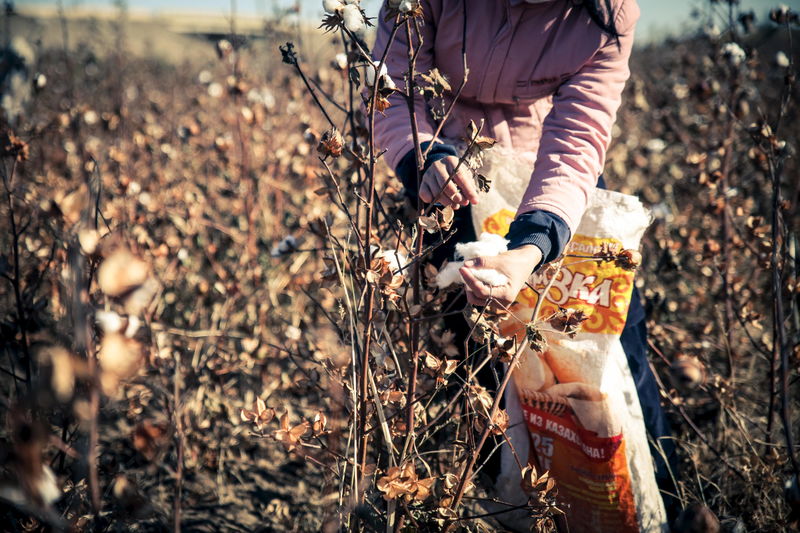By David Lawder
WASHINGTON (Reuters) - The head of a major apparel industry group told lawmakers on Thursday that blanket U.S. import bans on cotton or other products from China's Xinjiang region over forced labor concerns would "wreak havoc" on legitimate supply chains.
Stephen Lamar, president of the American Apparel and Footwear Association, said his industry is working hard to root out products made with forced labor from its supply chains, but Xinjiang, where China has detained over 1 million Muslim Uighurs, represents a unique challenge.
A blanket import ban on all cotton from Xinjiang such as that proposed earlier this month would be impossible to enforce, as would bipartisan legislation banning imports of all products from Xinjiang unless proven free of forced labor, Lamar told a House of Representatives Ways and Means trade subcommittee hearing.
U.S. Customs and Border Protection on Monday announced five Withhold Release Orders (WROs) banning imports from specific producers of cotton, textiles, apparel, hair products and computer parts in Xinjiang but refrained from proposed broad bans on all cotton and tomatoes from the region.
"Such a WRO or legislation would no doubt make headlines, but they would wreak havoc on human rights, economic development and legitimate supply chains, themselves already battered by COVID-19 all over the world," Lamar said.
"As a country, we simply do not have the capability or capacity to implement or comply with or enforce a blanket WRO or the proposed legislation right now."
He said Xinjiang produces about 20% of all cotton consumed in the world, and fibers from the region are often co-mingled with cotton grown in the United State and elsewhere. Xinjiang cotton also is exported to other apparel producing countries, including Bangladesh, Vietnam, Cambodia and Indonesia and there is no technology available to trace cotton origin with reasonable accuracy.
